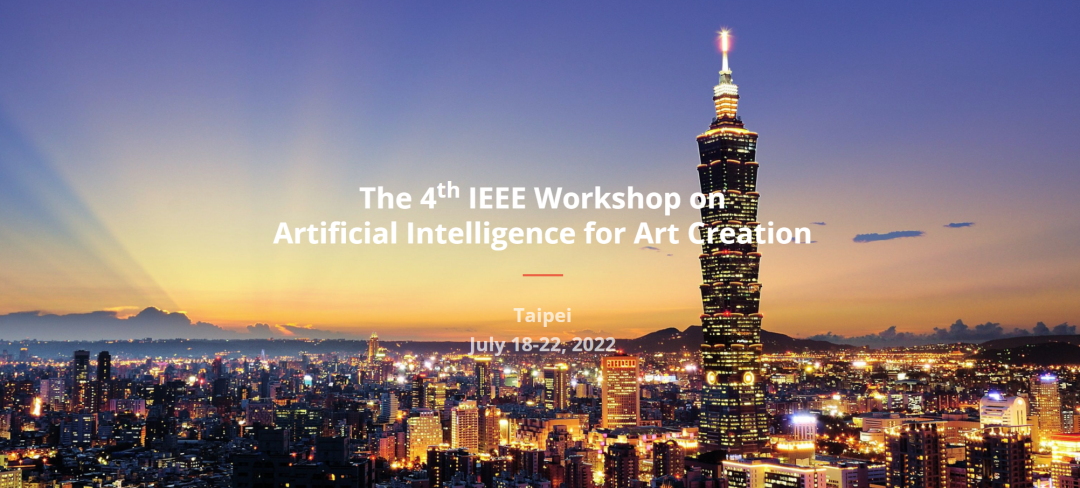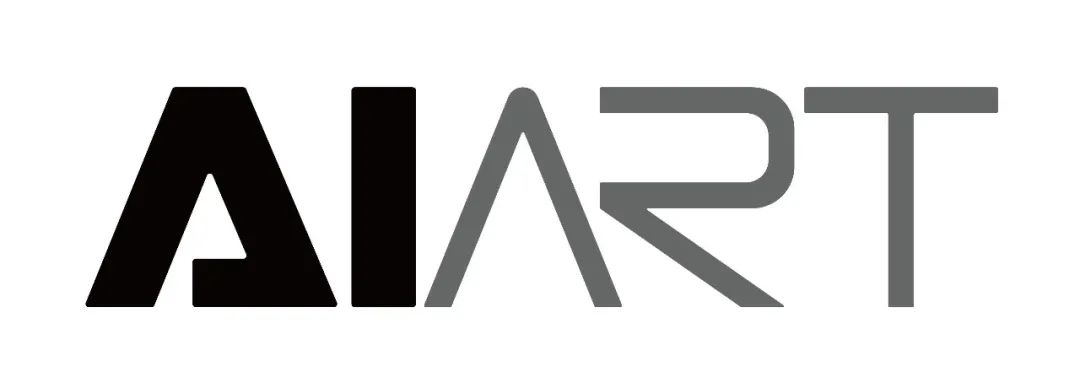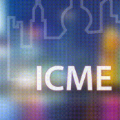AIART 2022 Call for Papers

AIART 2022 Call for Papers
The 4th IEEE Workshop on
Artificial Intelligence for Art Creation
Overview
Artificial Intelligence (AI) has already fueled many academic fields as well as industries. In the area of art creation, AI has demonstrated its great potential and gained increasing popularity. People are greatly impressed by AI painting, composing, writing, and designing. And the emerging technology of metaverse even provides more opportunity for AI Art. AI has not only exhibited a certain degree of creativity, but also helped in uncovering the principles and mechanisms of creativity and imagination from the perspective of neuroscience, cognitive science and psychology.
This is the 4th AIART workshop to be held in conjunction with ICME 2022, which is a flagship international conference in the field of multimedia. AIART 2022 aims to bring forward cutting-edge technologies and most recent advances in the area of AI Art, which enable the creation, analysis, understanding, and rendering of art works, digitally or physically. The theme topic of AIART 2022 will be Affective computing for AI Art. And we plan to invite 5 keynote speakers to present their insightful perspectives on AI Art.
We will edit and publish a book with a title like Artificial Intelligence for Art Creation, Understanding, and Protection based mainly on the significant extension of the papers accepted by AIART 2022. The book is to appear in the Book Series of Multimedia Computing, Communication, and Intelligence published by Taylor and Francis Group.
Topics
We sincerely invite high-quality papers presenting or addressing issues related to AI Art, including but not limited to the following topics:
• Affective computing for AI Art;
• Theory and practice of AI creativity;
• Neuroscience, cognitive science and psychology for AI Art;
• AI Art for metaverse;
• AI for painting generation;
• AI for music/sound synthesis, composing, matching and instrument digital design;
• AI for poem composing and synthesis;
• AI for typography and graphic design;
• AI for fashion, makeup and virtual human;
• AI for style transfer of artworks;
• AI for aesthetics understanding, analysis, assessment and prediction;
• Authentication and copyright issues of AI artworks.
Submission
Authors should prepare their manuscript according to the Guide for Authors of ICME available at Author Information and Submission Instructions: http://2022.ieeeicme.org/author-info.html.
Important Dates
Workshop paper submission deadline:
April 9, 2022
Homepage
https://aiart2022.github.io
Organizing Team
• Luntian Mou, Beijing University of Technology, Beijing, China
• Feng Gao, Peking University, Beijing, China
• Zijin Li, Central Conservatory of Music, Beijing, China
• Jiaying Liu, Peking University, Beijing, China
• Wen-Huang Cheng, National Chiao Tung University, Taiwan
• Ling Fan, Tezign.com; Tongji University Design Artificial Intelligence Lab, Shanghai, China
Technical Program Committee
• Ajay Kapur, California Institute of the Arts, USA
• Alexander Lerch, Georgia Institute of Technology, USA
• Alexander Pantelyat, Johns Hopkins University, USA
• Bahareh Nakisa, Deakin University, Australia
• Baoqiang Han, China Conservatory of Music, China
• Baoyang Chen, Central Academy of Fine Arts, China
• Beici Liang, Tencent Music Entertainment Group, China
• Bing Li, King Abdullah University of Science and Technology, Saudi Arabia
• Björn W. Schuller, Imperial College London, UK
• Bob Sturm, KTH Royal Institute of Technology, Sweden
• Changsheng Xu, Institute of Automation, Chinese Academy of Sciences, China
• Dongmei Jiang,Northwestern Polytechnical University,China
• Haifeng Li, Harbin Institute of Technology, China
• Haipeng Mi, Tsinghua University, China
• Hongxun Yao, Harbin Institute of Technology, China
• Jesse Engel, Google, USA
• Jia Jia, Tsinghua University, China
• Jianyu Fan, Microsoft, Canada
• John See, Multimedia University, Malaysia
• Juan Huang, Johns Hopkins University, USA
• Junping Zhang, Fudan University, China
• Kejun Zhang, Zhejiang University, China
• Ke Lv, University of Chinese Academy of Sciences, China
• Kenneth Fields, Central Conservatory of Music, China
• Lai-Kuan Wong, Multimedia University, Malaysia
• Lamtharn Hanoi Hantrakul, ByteDance, USA
• Lei Xie, Northwestern Polytechnical University, China
• Lin Gan, Tianjin University, China
• Long Ye, China University of Communication, China
• Maosong Sun, Tsinghua University, China
• Mei Han, Ping An Technology Art institute, USA
• Mengjie Qi, China Conservatory of Music, China
• Ming Zhang, Nanjing Art College, China
• Mohammad Naim Rastgoo, Queensland University of Technology, Australia
• Nick Bryan-Kinns, Queen Mary University of London, UK
• Nina Kraus, Northwestern University, USA
• Pengtao Xie, University of California, San Diego, USA
• Philippe Pasquier, Simon Fraser University, Canada
• Qin Jin, Renmin University, China
• Rebecca Fiebrink, University of London, UK
• Rick Taube,University of Illinois at Urbana-Champaign,USA
• Roger Dannenberg, Carnegie Mellon University, USA
• Rongfeng Li, Beijing University of Posts and Telecommunications, China
• Rui Wang, Institute of Information Engineering, Chinese Academy of Sciences, China
• Ruihua Song, Renmin University, China
• Shangfei Wang, University of Science and Technology of China, China
• Shasha Mao, Xidian University, China
• Shiguang Shan, Institute of Computing Technology, Chinese Academy of Sciences, China
• Shiqi Wang, City University of Hong Kong, China
• Si Liu, Beihang University, China
• Simon Lui, Tencent Music Entertainment Group, China
• Tiange Zhou, NetEase Cloud Music, China
• Weiming Dong, Institute of Automation, Chinese Academy of Sciences, China
• Wei-Ta Chu, National Chung Cheng University, Taiwan
• Wei Li, Fudan University, China
• Weiwei Zhang, Dalian Maritime University, China
• Wei Zhong, China University of Communication, China
• Xi Shao, Nanjing University of Posts and Telecommunications, China
• Xiaojing Liang, NetEase Cloud Music, China
• Xiaopeng Hong, Harbin Institute of Technology, China
• Xiaoyan Sun, University of Science and Technology of China, China
• Xiaoying Zhang,China Rehabilitation Research Center,China
• Xihong Wu, Peking University, China
• Xinfeng Zhang, University of Chinese Academy of Sciences, China
• Xu Tan, Microsoft Research Asia, China
• Yanchao Bi, Beijing Normal University, China
• Yi Qin, Shanghai Conservatory of Music, China
• Ying-Qing Xu, Tsinghua University, China
• Yirui Wu, Hohai University, China
• Yuanchun Xu, Xiaoice, China
• Zhiyao Duan, University of Rochester, USA







